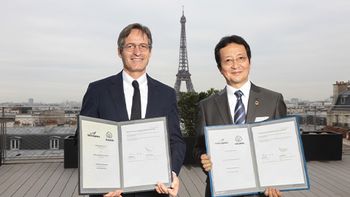
TransCelerate Biopharma targets preclinical research with BioCelerate
New subsidiary will look at common industry problems in preclinical work
Since its founding as a consortium of leading pharma companies collaborating on industry-wide operational issues, TransCelerate Biopharma has successfully completed a handful of projects, establishing practical, efficient guidance for issues such as comparator drug sourcing, investigator-site compilations and common trial protocol template. Now, propelled by a subset of its members, it is going to address similar challenges in preclinical work. The first collaborative project: sharing toxicology data that has arisen from members’ previous preclinical work. It’s not self-evident that toxicology data is sharable, but as Dr. Dalvir Gill, CEO of both TransCelerate and BioCelerate, says, “one of the beauties of our collaborative framework is that common research problems are identified when these researchers get together.”
TransCelerate, founded in 2012, came out of the era in the late 2000s when the industry saw mounting R&D costs, yet fewer successful drug launches, and the realization that pharma companies seemed to be reinventing the wheel with each new drug undertaking. The founding members were ten; now the membership is 19. Of those 19, six are the founding members of BioCelerate: Boehringer Ingelheim, Bristol-Myers Squibb, Eli Lilly, GlaxoSmithKline, Novo Nordisk and Shinogi.
“BioCelerate, like TransCelerate, will focus on pragmatic and tangible solutions to common challenges with the end goal of improving drug development efficiency and bringing new medicines to patients faster. The organization will seek to actively collaborate with multiple stakeholders to enhance the resources dedicated to solving these issues and will also ensure visibility of projects to regulatory agencies,” said Gill, in a statement.
BioCelerate members first need to be TransCelerate members; and the organization is still actively seeking additional members. For the time being, it will continue to restrict participation to research-oriented pharma manufacturers, although TransCelerate has ongoing dialogue with, among others, the Assn. of Clinical Research Organizations and the Soc. of Clinical Research Sites. “Our practice is to bring in other stakeholders after our members have identified key issues, then sharing inputs and solution development,” says Gill. “In the end, no one wants the clinical development process to be inefficient.”
Newsletter
Stay ahead in the life sciences industry with Pharmaceutical Commerce, the latest news, trends, and strategies in drug distribution, commercialization, and market access.




